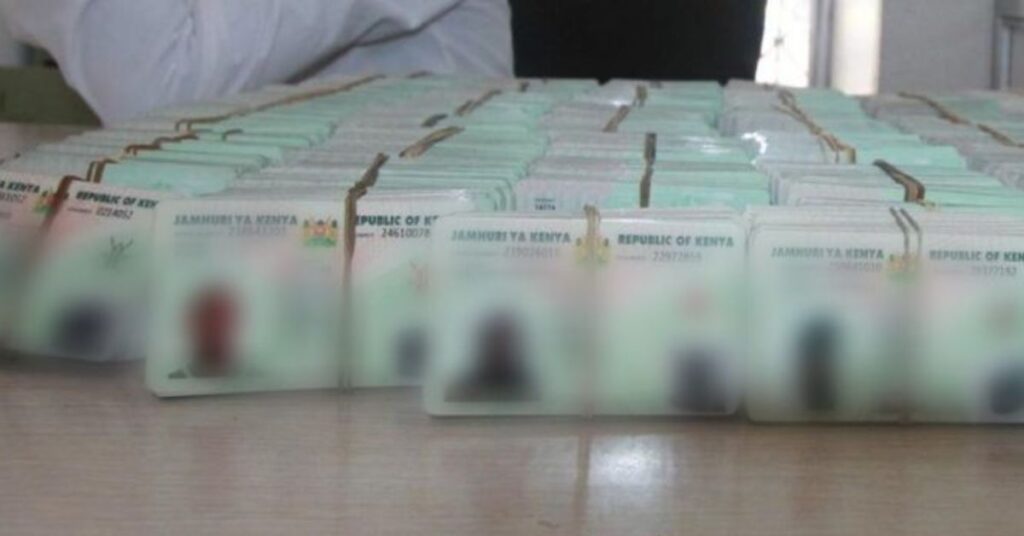Maisha Cards: Why Kenyans Will Renew Their National IDs Every 10 Years
In a move to modernize the nation’s identification system, Julius Bitok, the Principal Secretary of the State Department for Immigration and Citizen Services, announced the introduction of the Maisha card, a digital identity card that will require renewal every ten years.
This decision, detailed in a statement issued on Monday, aligns Kenya with several other countries that have adopted similar practices for their digital ID systems.
“Holders will need to renew their National ID cards every ten years. This is a standard practice in countries such as Uganda, Tanzania, Nigeria, Senegal, and France, among others that have implemented an ID with a microchip,” stated Bitok.
The introduction of the Maisha card has raised concerns among citizens, primarily due to the 10-year expiry date of the National ID cards.
However, the government has assured that the renewal process will be streamlined. Applicants will not be required to undertake fresh biometric registration but will need to retake their passport-sized photos to account for changes in facial features over the years.

Bitok further explained that the Maisha ecosystem is designed to comply with regional and international best practices. “The Maisha ecosystem complies with regional and international best practices on the standardization of essential features of personal registration documents including the National ID Card,” he said.
Additionally, the new ID cards are developed in line with the International Civil Aviation Organization (ICAO) requirements for cross-border identification documents.
The government emphasized that the Maisha cards incorporate enhanced security features, making them difficult to forge and tamper with, and also include digital features that allow the creation of a digital version of the National ID Card.
Another significant reason for the development of the Maisha cards is database consolidation. This will enable the government to create a master national register, eliminating the need for multiple and separate personal registration records.
Addressing the current state of National ID printing, Bitok revealed that the National Registration Bureau (NRB) has acquired a modern printer to enhance printing capacity.
“The NRB appreciates the importance of the National ID Card as a constitutional right and an essential identification document and will strive to ensure eligible Kenyans obtain it as soon as possible,” he affirmed.
To meet the increasing demand for services, the NRB has boosted its printing capacity to 30,000 National ID cards per day, significantly higher than the average daily demand of 10,000 applications.
“To meet the rising demand for services, NRB has acquired a modern printer and enhanced the printing capacity to 30,000 National ID Cards per day against an average demand of 10,000 applications,” read the statement in part.
In Other News: Pauline Njoroge Sets The Record Straight On Uhuru And Raila’s Dubai Meeting
Maisha Cards: Why Kenyans Will Renew Their National IDs Every 10 Years

